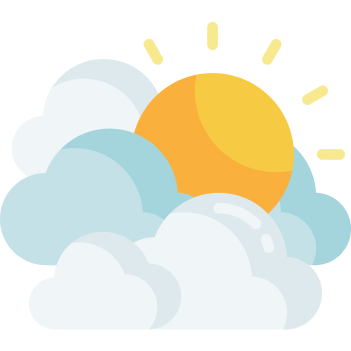STUDY IN SWITZERLAND
Precision and Excellence –
Shaping Global Leaders in Switzerland.
Discover education in Switzerland, a country where precision and excellence harmonize to create an ideal environment for shaping future global leaders.
FACTS
Learn everything you need to know about studying in Switzerland

CAPITAL
Bern

Currency
Swiss Franc CHF

Language
German, French, Italian, Romash

International Students
74,440+

Population
8.87 Million

Universities & Colleges
43+
Universities
Here are some of the best universities in Switzerland where academic excellence takes center stage!
- ETH Zurich
- EPFL
- University of Zurich
- University of Basel
- University of Bern
- University of Geneva
- University of Lausanne
- USI – UniversitàdellaSvizzeraitaliana
- University of St.Gallen (HSG)
- Université de Fribourg
- Geneva Business School
- And Many More
Ready to Explore the Options and Move Ahead with your Educational Voyage
Courses
The following disciplines are oft-chosen at Swiss universities by international students who aspire to Study in Europe.
Turn your Study Abroad Dream to Degrees abroad in Switzerland
Why choose Switzerland as a Study in Europe destination?
- ETH Zurich takes the position of pride among the top 10 in the QS World University Rankings 2024, with a total of 11 institutions featuring in the list, establishing the Swiss brand of academic excellence globally.
- With a flexible and versatile education system, choose from a wide range of programs across academic levels, taught in different languages like German, French and English at prestigious Swiss universities.
- At Swiss Universities, an IELTS score is not mandatory to secure admission. You are eligible to apply with basic English Speaking and Writing skills.
- Switzerland is the most innovative economy in 2023 for the 13th year in a row. Understandably the research outlook stems from the labs of the Swiss universities.
- The Swiss cities of Zurich and Lausanne feature in the top 20 student-friendly cities in the world.
- As the global hub for finance, technology, and innovation, you have the opportunity to kickstart your career post-qualification with 15 Fortune 500 companies like Nestle, Credit Suisse, Novartis, Glencore, etc., all based in Switzerland.
- About one-fourth of the Swiss population are expats and a significant percentage of this expat community comprises international students who stayed back after completion of their education in the country.
Intakes:
Intake: Fall
Session Starts: September
Intake: Spring
Session Starts: February
Different institutions have different application deadlines and session start dates. Seek guidance from recognized Education Consultants to obtain precise information on the timeline of your desired university.
Tuition Fees
In Switzerland, tuition fee varies between institutions and programs. However, to give you an idea of the cost of pursuing a Swiss qualification, the average annual tuition fee can range between € 1,500 to € 15,000.
Talk to the UniApplica team of Europe Education Consultants today to find out the exact tuition fees you will have to shell out for the program of your choice at your preferred Swiss institution.
Scholarships
International students can avail of several scholarship options to pursue a Swiss qualification, including government-funded ones. Let us take a look at the most prominent scholarship programs available in Switzerland.

Awarded by the Swiss Confederation, Swiss Excellence Scholarships for Foreign Students is a prestigious research funding open to post-graduate researchers in any discipline from over 180 countries pursuing doctoral or post-doctoral research in Switzerland. The award covers a monthly allowance, tuition fee exemption, health insurance, airfare, housing allowance, etc.
ETH Zurich funds three scholarship programs for students enrolling on a master’s at the institution – the Excellence Scholarship & Opportunity Programme (ESOP) which covers the complete program and living costs of the awardee, and the Master Scholarship Programme (MSP) aids students with a partial stipend and assistantship offer.
University of Lausanne Master’s Grants for Foreign Students awards deserving postgraduate students a monthly grant is CHF1,600 for the program duration.
EPFL Excellence Fellowships offer grants to postgraduate students with outstanding academic records. The program covers an annual allowance of CHF16,000 for the study period and student accommodation.
Graduate Institute Geneva Scholarships include full and partial scholarships amounting to CHF20,000 and CHF10,000 respectively, tuition fee reduction, or teaching/research assistantship. For outstanding research candidates, the institution extends a complete package constituting 2 years of full scholarship and 2 years of teaching assistantship.
The University of Geneva Excellence Master Fellowships awards exemplary Master of Science students with an annual grant in the range of CHF10,000 – CHF15,000.
IMD MBA Scholarships are open for students of any nationality and background. You can get grants of CHF25,000 – CHF50,000, provided you meet the preconditions for the program.
Cost of Living
Living in a beautiful locale like Switzerland warrants a premium like the high cost of Swiss living. Although an average budget of €1300 to €1700 will pay for your day-to-day expenses in the smaller cities, bigger cities like Basel, Zurich, and Geneva will stretch your budget by €2000 – €2500. Let us take a look at the different cost overheads that will eat into your funds.
Particulars | Estimated Monthly Expenses (in Euro) | |
Accommodation | Shared Flat: 700 -1200 | |
Basic Grocery | 400 – 550 | |
Local Conveyance (monthly pass) | 55 | |
Books and Stationaries | 100 | |
Health Insurance | 250 – 300 | |
Work Opportunities:
Allowance:
EU/EFTA nationalities:
- Students with a residence permit pursuing Bachelor’s/Master’s Studies in Switzerland can work up to 15 hours a week while school is in session and full-time during session breaks.
- In both instances, they must duly notify the competent authorities before taking up the job.
- For an internship of less than three months in a year, the employer must submit an online notification.
- Doctoral students need a residence permit if they wish to work for more than 15 hours a week.
Non-EU/EFTA nationalities:
- Students pursuing Bachelor’s/Master’s programs can start to work up to 15 hours a week after 6 months into their study period and full-time work during session breaks, subject to a confirmation from the university that the job will not disrupt their studies and an official application is forwarded by the employer.
- Some cantons in the country allow students with a UG degree from a foreign university pursuing a higher degree in the same field in Switzerland to start working as soon as the program starts.
- In case of a mandatory internship component, your university should confirm so besides an official application submitted by the employer before you start interning. Further, the internship period should not be more than half of the study duration.
- Doctoral students can work up to 15 hours a week if there is no link between the job responsibilities and research premises, and more than 15 hours if there is a demonstrated link between the two. In both cases, employment is subject to a confirmation from the university that the job will not disrupt studies and an official application is forwarded by the employer.
Wages:
There is no national minimum wage in Switzerland, although some cantons in the country have set canton-wide minimum wage. This may vary with cantons and ranges between CH19 and CH24 per hour.
EU/EFTA nationals graduating with a Bachelor’s or Master’s degree in Switzerland can apply for a six-month residence permit to seek employment opportunities. A short-term or long-term permit may be approved if subject to labour conditions in the market and an official application from the employer.
A short or long-term work permit is granted to non-EU/EFTA students after they graduate from Swiss universities, subject to labour conditions in the market, and the appropriate qualification required for the job. Such students are eligible to apply for a six-month residence permit to look for suitable employment.

Climate / Weather:
Swiss winters are usually long and cold, while summers are pleasant. July and August are the warmest months with temperatures ranging between 18°C to 28°C. During January-February, the coldest months of the year, mercury can dip down to -2°C.
How To Apply to Study in Europe at an Switzerland University
- Undergraduate Degree – An upper secondary school-leaving certificate equivalent to the Swiss Matura/Maturité/Maturità.
- Master’s Degree – A bachelor’s degree from an accredited university in a related discipline.
- Doctoral Degree – A relevant master’s degree from an accredited university.
Switzerland is a multilingual country and universities conduct programs in German, French, Italian and English. The majority of postgraduate programs in the country are English-taught. Submit language proficiency proof according to the medium of instruction of the course you are applying for.
Your academic documents must be translated into either French or English by a certified translator, if issued originally in any other. Additionally, you may have to submit a certificate from your last educational institution explaining the grading and assessment system.
- A completed application form.
- A valid passport and passport-size photograph.
- Previous academic records and transcripts including High school Certificate for UG admission, Bachelor’s Degree Certificate for Master’s admission, or Master’s Degree Certificate for Doctoral admission (as applicable).
- Language proficiency certificates.
- Curriculum vitae.
- Motivation letter detailing the reasons for choosing Switzerland and the institution for your education.
- Application fee payment evidence.
Application for admission is online, through individual university websites.
Please note that additional documents may be asked for, depending upon the canton where the chosen institution is located. Check with the UniApplica team of Europe Education Consultants to know more about additional documents that may be asked for.

Swiss Study Visa Guidance
Visa application fee: €60 | Processing Time: 8 weeks minimum.
Visa Categories:
Students from EU/EFTA countries do not need any authorization for stays up to 90 days in Switzerland. For longer stays you have to get a residence permit issued within 14 days of arrival in the country. The permit has a validity of one year, renewable annually to cover your study period.
Students from non-EU/EFTA nations must obtain an appropriate visa from the Swiss Diplomatic Mission in their home country.
You can submit your Swiss visa application either:
- At a Swiss representation abroad directly
- Complete the visa application online
- At an external visa service provider
Students from EU/EFTA countries should submit the following documentation with their resident permit application:
- Admission confirmation from a recognized Swiss HEI
- Proof of financial sufficiency to support your stay in Switzerland
- Health insurance policy including accident coverage
Students from non-EU/EFTA countries should submit the following documentation with their resident permit application:
- A study plan with an explanation about the purpose of your studies
- Updated curriculum vitae
- A declaration that you will exit Switzerland after completing your program
- Proof of language proficiency
- Admission confirmation from a recognized Swiss HEI
- Proof of financial sufficiency to support your stay in Switzerland
- Proof of appropriate accommodation
- Health insurance policy, including accident coverage


Beyond Borders, Beyond Limits
Elevate Your Education with Global Opportunities! Unite with
Leading Advisors and an Empowered Study Abroad Community.
FAQs
Why Study Abroad With UniApplica?
UniApplica covers the basics every Study needs. For everything, Anything.
Switzerland is a multilingual country with four official languages, namely, French, German, Italian, and Romansh, while English is spoken widely. As such, universities offer different programs in different mediums of instruction. So yes, you can pursue an English-taught program in Switzerland. Notable institutions like the University of Zurich, University of Geneva, University of Bern, University of Basel, and ETH Zurich, among others, offer various degrees and programs in English.
Although education in Switzerland is easy on the pocket, the living costs in the country are on the higher side, compared to other European nations. Your cost of living will depend on the location you choose to stay at. The bigger cities like Basel, Zurich, and Geneva will stretch your budget while it is more manageable in smaller Swiss towns. Besides, shared accommodation and monthly passes for local transportation are some of the means to minimise your expenses.
As per statistics, 25% of the total student population in Switzerland are international students. Of this international student community, 75% are engaged in part-time employment alongside their studies. This speaks volumes about the job prospects in the country and the ease of finding suitable openings to gain valuable professional experience and some fast buck. Post-graduation, international students can also stay back in the country up to six months to seek for job opportunities. With many large multinational companies headquartered in the country, the job market holds immense promise for skilled workers.
Permanent residency in Switzerland is possible, but not right after you finish your study period in the country. If you secure a work visa after the completion of your program and work in Switzerland continuously for 10 years with a clean police record and proficiency in one of the official languages, you can apply for a Permit C PR to settle in the country.
As a multilingual country, Switzerland does not stress proficiency in any particular language for visa processing. As an international student, you need to demonstrate your proficiency levels in the language of instruction of the program you are signing up for in the country at the time of admission. Here is a list of the different language tests accepted by Swiss universities.
- German: DSH, TestDaF, DSD, Telc Deutsch C1 Hochschule and others
- French: DELF, DALF
- Italian: CELI
- English: PTE Academic, IELTS Academic, TOEFL iBT, Duolingo
While applying for your Swiss visa, you need to include the language proficiency test scores as a mandatory document to establish your competence in participating in the study program in the country.
Contact the Europe Education Consultants team at UniApplica for appropriate language test preparation guidance.
As proof of financial sufficiency to support you during your stay in Switzerland, you must demonstrate CHF21,000 in your personal bank account for each year of your studies.
